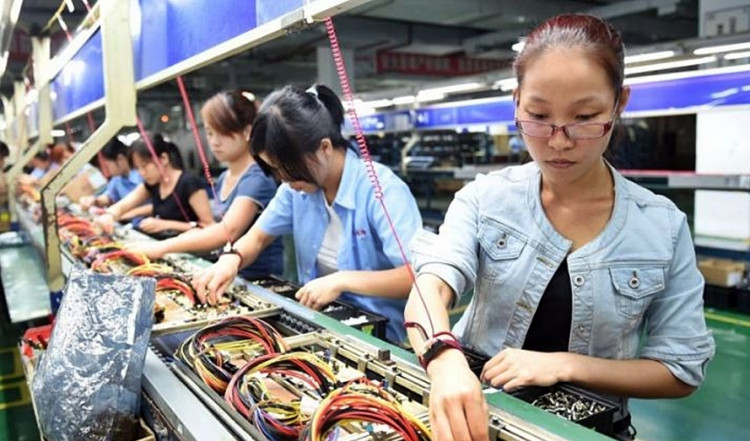China is pushing back against a mounting wave of reports its economy is slowing down and its currency, the yuan, continuing to lose value against the U.S. dollar.
It's found an ally in China Beige Book International (CBB), a Western firm that calls itself the largest private in-country data-collection network ever developed to track the Chinese marketplace. CBB claims news that China's economy decelerated in the second quarter is misleading and inaccurate.
It said retail sales and investment were actually stronger than that revealed by official data. It believes the slowdown in May doesn't reflect the existing situation "but (reflects) weakness seen earlier this year and late last year. " CBB conducted a quarterly survey of thousands of Chinese firms to derive this data.
"The retail sector may be seeing a turn higher, with profit and investment growth improving," according to the CBB report. "The sector may already be emerging from the troubles Beijing is just now introducing publicly."
CBB data also claims to show that China's capital spending remains robust in most sectors. It shows that official fixed-asset investment data only "reflects only part of the story -- panning the camera to a wider angle shows strong capex in multiple sectors."
CBB data, however, contradicts those emanating from China and confirmed by Western sources. Government data for May reveals retail sales growth decelerating to the slowest in over 15 years, while infrastructure investment plunged to 2.3 percent from 11.3 percent. Fixed asset investment growth again fell, this time to an all-time low of 3.9 percent from 6.1 percent in April. Export growth fell to 3.2 percent in May from 3.7 percent in April.
In addition, the Shanghai Composite officially entered bear market territory on June 27 after being battered by bad news about an all but inevitable trade war with the United States and a sagging economy. It skidded 0.5 percent on June 27. This amounted to a total drop of 20.1% from the composite's January peak, and down 14 percent year-on-year.
As a result of the economic slowdown, Western analysts expect the People's Bank of China (PBOC) to again ease policy to cope with weaker growth and to offset the effects of a crackdown on the massive illegal shadow banking sector.
CBB's survey, however, did confirm signs of weakness in China's economy in the second quarter. It said Chinese firms reported the slowest growth since late 2016, "Manufacturing's challenge is not now, it's next year. Export orders slipped and a major escalation in the U.S.-China tariff war may be in the offing," said the CBB report.
CBB also said the weakness in China's industrial output, investment and retail sales in May suggest further weakness ahead if Beijing continues a controversial crackdown on questionable local government spending and shadow banking.





